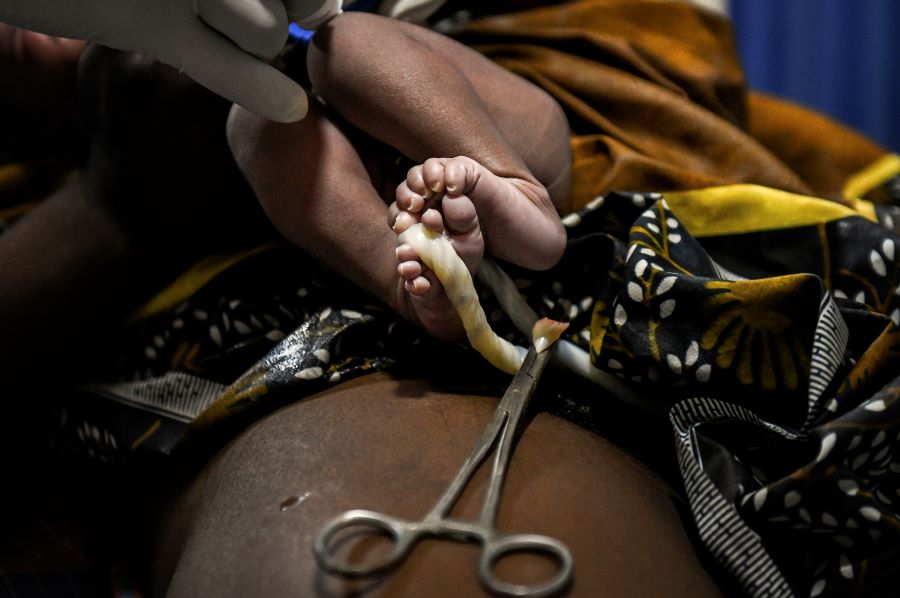
by Stella Mapenzauswa | 22 Sep 2021 | Africa, Educators' Catalog, Health and Wellness, Women's rights
In Africa as elsewhere, many schools have shut classes due to COVID-19. With more girls at home, teenage pregnancies have spiked in some nations. A new-born baby in Chiradzulu, southern Malawi, 26 May 2021 (AP Photo/Thoko Chikondi) In much of the world, COVID-19 has...
COVID-19 has dominated headlines for the last year and a half. But the public health impact stretches beyond the virus. School closures did not just interrupt learning; they removed an essential form of protection for vulnerable youth. News Decoder correspondent Stella Mapenzauswa reports on the alarming rise in teenage pregnancies across the African continent since March 2020.
Exercise: Ask your students to enumerate some of the unanticipated consequences of the pandemic in their community. How are schools or governments addressing those challenges now?
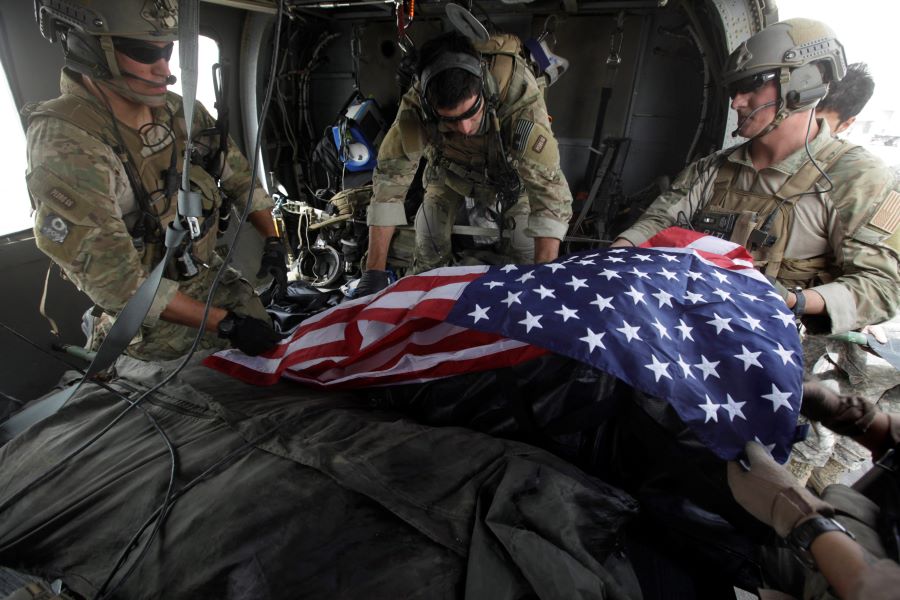
by Bryson Hull | 20 Sep 2021 | Asia, Conflict, Eyewitness, Islam, Personal Reflections, Politics, Terrorism, World
Many of us sensed a doomed U.S. mission in Afghanistan years ago and had drawn lessons. But the final costs of the invasion are still being tallied. U.S. soldiers drape a flag over a fellow serviceman killed on 29 July 2010 in Kandahar province, Afghanistan. (AP...
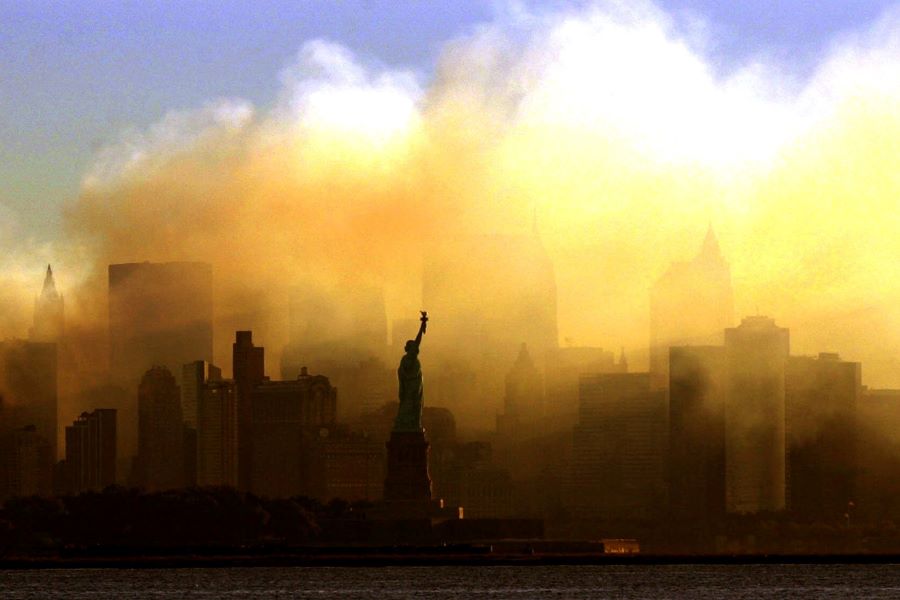
by Gene Gibbons | 10 Sep 2021 | Decoders, Educators' Catalog, Islam, Personal Reflections, Politics, Terrorism, World
Primitive tribes helped topple the powerful Roman Empire. Did attacks on the U.S. by Islamist extremists 20 years ago augur the end of a superpower? The Statue of Liberty and New York City’s skyline as smoke rises from the ruins of the Twin Towers, four days...
We often hear that history repeats itself. A core tenet of News Decoder’s mission is to help students place current events in a broader historical context. Correspondent Gene Gibbons looks beyond today’s headlines all the way back to ancient Rome to show how pride, corruption, strategic overreach and other political mistakes have contributed to the decline of superpowers, then and now.
Exercise: Ask students to debate the question in the headline, providing evidence for their position.
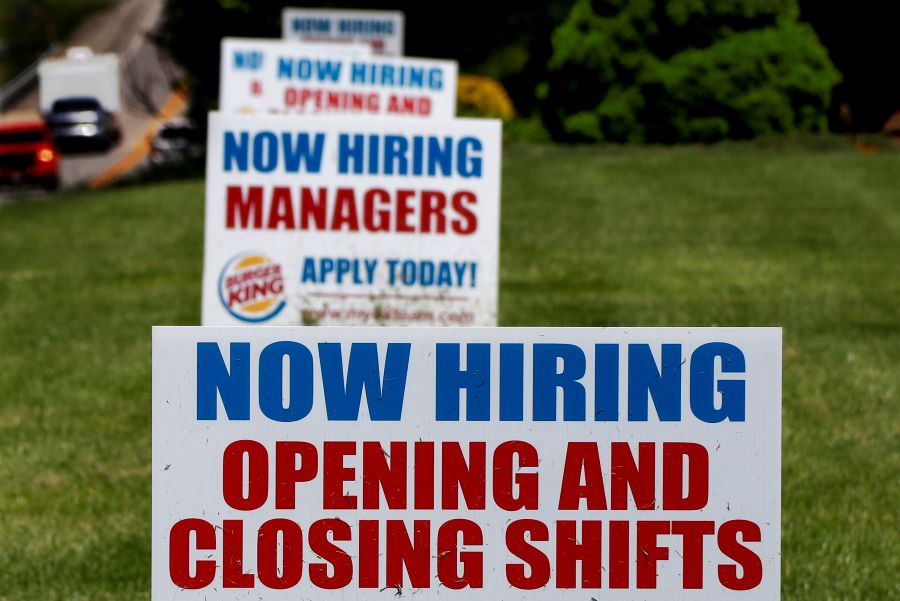
by Sarah Edmonds | 8 Sep 2021 | Decoders, Economy, Educators' Catalog, World
Many nations’ economies are bouncing back from COVID-19, putting upward pressure on prices. The jury’s out on whether inflation is back to haunt us. Signs advertising jobs in Harmony, Pennsylvania, 21 May 2020. Increased economic growth in some economies...
Inflation can be a challenging topic to understand. What exactly is it, why is it important and is it really all that bad? Correspondent Sarah Edmonds brings her economics expertise to this decoder that unpacks the link between the prices of goods and services and the value of your money, and shows how consumer expectations as economies rebound could lead to an inflationary spiral.
Exercise: Ask students to compare the average price of goods in their city, such as food, gas or a new car, with average local wages since the pandemic began in March 2020. How have they changed (or not)?
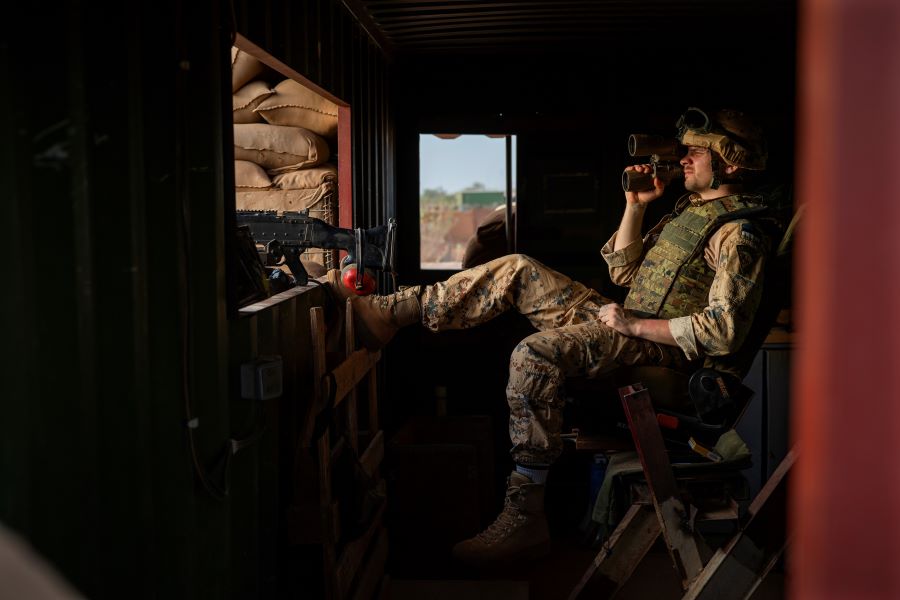
by Jessica Moody | 6 Sep 2021 | Africa, Asia, Conflict, Educators' Catalog, Islam, Politics, World
Islamist extremists are threatening fragile nations in West Africa. Will Afghanistan’s fall to the Taliban yield lessons for France in the Sahel? A soldier guards a Western military base in Gao, Mali on 6 June 2021, days after France announced the end of its...
When it comes to world politics, major news outlets often focus on one place at a time, obscuring important events unfolding elsewhere that can cause geopolitical ripples. In this article, News Decoder’s Jessica Moody shines a light on extremist violence plaguing West African nations in the Sahel, the semi-arid region below the Sahara. She draws parallels between French military involvement in the region and the United States’ recent withdrawal from Afghanistan, highlighting the global challenge of preventing extremist groups from proliferating in fragile states.
Exercise: Ask students to search news sites or newspapers for a global story that is not on the front page, then have them share their findings and explain why we should pay attention.
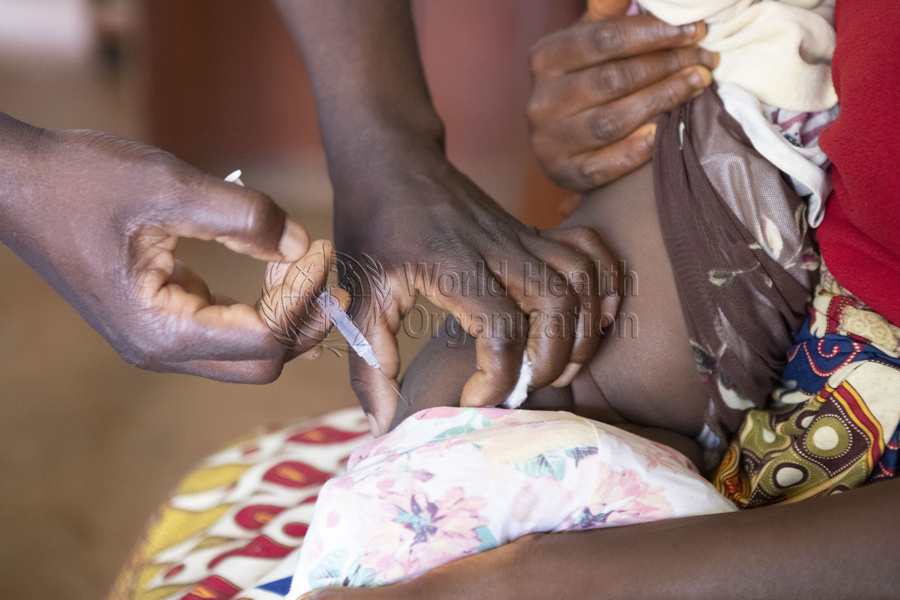
by Maggie Fox | 25 Aug 2021 | Educators' Catalog, Health and Wellness, World
COVID-19 could have brought out the best in humanity. Instead, public health programs have fallen short, exposing us to a resurgence of diseases. A baby is vaccinated against malaria in Malawi. (WHO/Mark Nieuwenhof) COVID-19 has shut down vaccination programs around...
Headlines about COVID-19 understandably tend to focus on the current state of affairs — cases, hospitalizations, deaths, new variants, vaccines. It takes the kind of expertise that Maggie Fox has earned in years of writing about science and health to look beyond today to see what the pandemic means for tomorrow. Citing the latest research, Fox explores how public health services are failing to cope with myriad illnesses that don’t stop in their tracks just because there’s a pandemic. The outlook is not bright.
Exercise: Ask your students to speak to a local epidemiologist to learn how COVID-19 is affecting public health services nearby and the impact the pandemic is having on the fight against other illnesses.
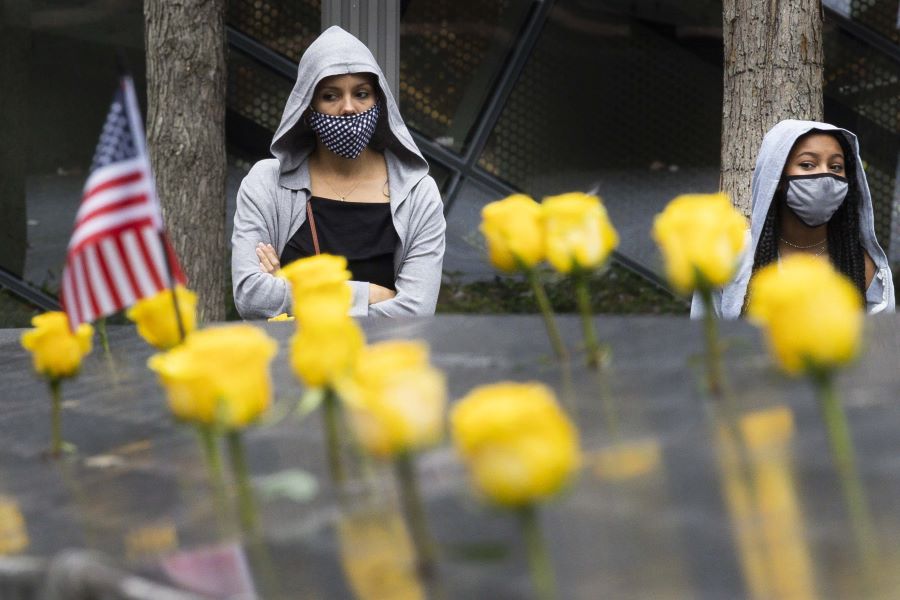
by Christina MacCorkle | 23 Aug 2021 | Asia, Conflict, Islam, Middle East, Politics, Student Posts, Terrorism, Thacher School, United States, Youth Voices
My generation was born after 9/11. Twenty years after that day, the attacks resonate with us, but we need historical context to grasp why they occurred. People walk past yellow roses and flags placed on the names of 9/11 victims who were veterans, at the 9/11 Memorial...
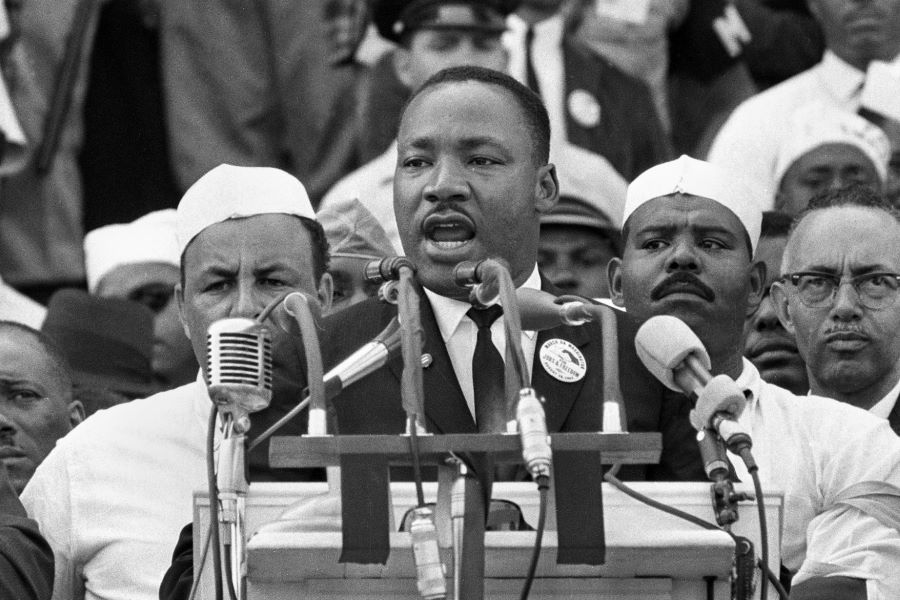
by Gene Gibbons | 19 Aug 2021 | Eyewitness, Personal Reflections, World
My birthday is a chance to survey the state of the world. So much news is full of despair, yet I feel mostly upbeat about progress that’s been made. Dr. Martin Luther King Jr. addresses marchers during his “I Have a Dream” speech at the Lincoln...
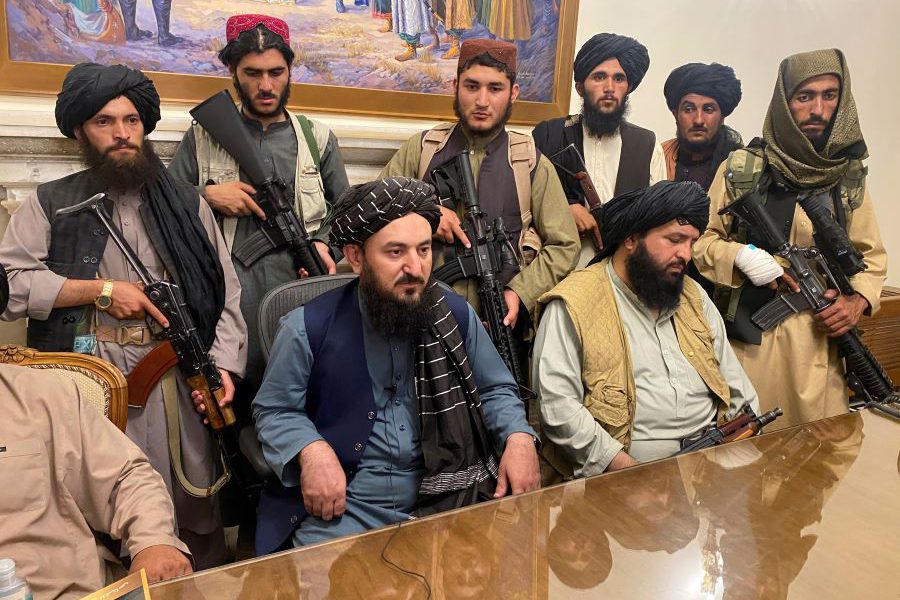
by Alistair Lyon | 16 Aug 2021 | Asia, Conflict, Educators' Catalog, Eyewitness, Human Rights, Islam, Politics, Terrorism, World
The Taliban have seized power in Afghanistan after another failed foreign intervention. Will they ease their hard line? And what lessons can be learned? Taliban fighters in Afghanistan’s presidential palace, Kabul, Afghanistan, 15 August 2021 (AP Photo/Zabi...
The reconquest of Afghanistan by the Taliban is a fast-moving story, and the mainstream media is busy keeping us informed of the latest developments. It’s one of those stories that cries out for context, and Alistair Lyon delivers the goods in his tour de force, informed by his years on the ground in the South Asian nation. If those who don’t know history are destined to repeat it, then Lyon’s article might help young readers understand why the U.S. intervention in Afghanistan was almost destined to fall short — and help them avoid similar mistakes in the future.
Exercise: Ask your students to compare U.S. involvement in Afghanistan with another foreign entanglement, and to elaborate on similarities and differences between the conflicts.
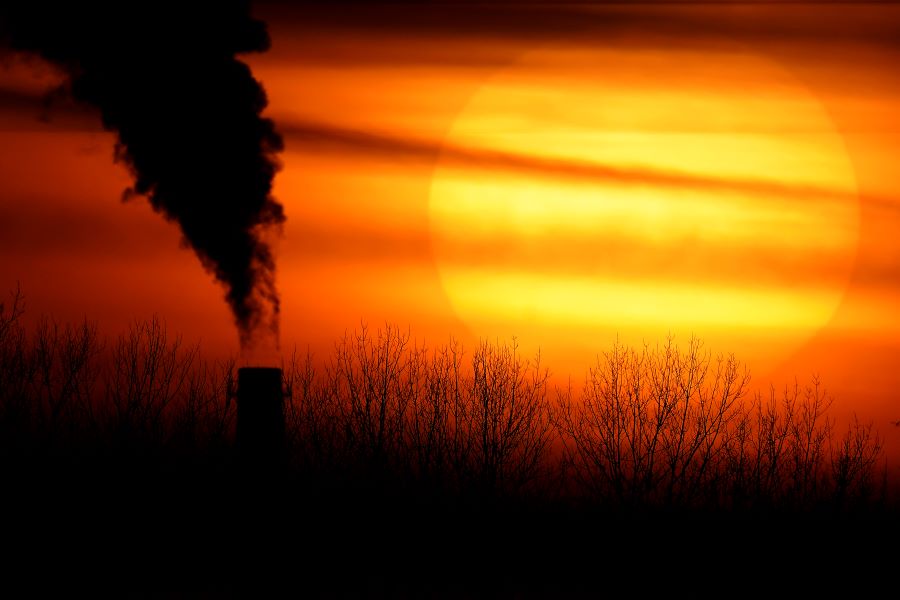
by Alister Doyle | 10 Aug 2021 | Climate change, Educators' Catalog, Environment, Technology, World
It’s taken more than a century, but experts now say humans are definitely to blame for the climate crisis. Will a UN report spur nations to take action? Emissions from a coal-fired power plant in Independence, Missouri, United States, 1 February 2021 (AP...
Alister Doyle puts his years of experience covering the environment to use in connecting the dots between the umpteenth report on the climate crisis and the umpteenth global meeting on what to do. Doyle provides a genuine service in showing us why the latest report by government experts and climate scientists has a bearing on the summit later this year in Glasgow to review the 2015 Paris Climate Agreement. Doyle’s report exemplifies News Decoder’s mission to explain complex global problems in a dispassionate, balanced and understandable way.
Exercise: Ask your students to choose an issue on the front page of a daily newspaper or on the nightly news, and to write an article explaining the background to the issue and why it’s important to the readers.










